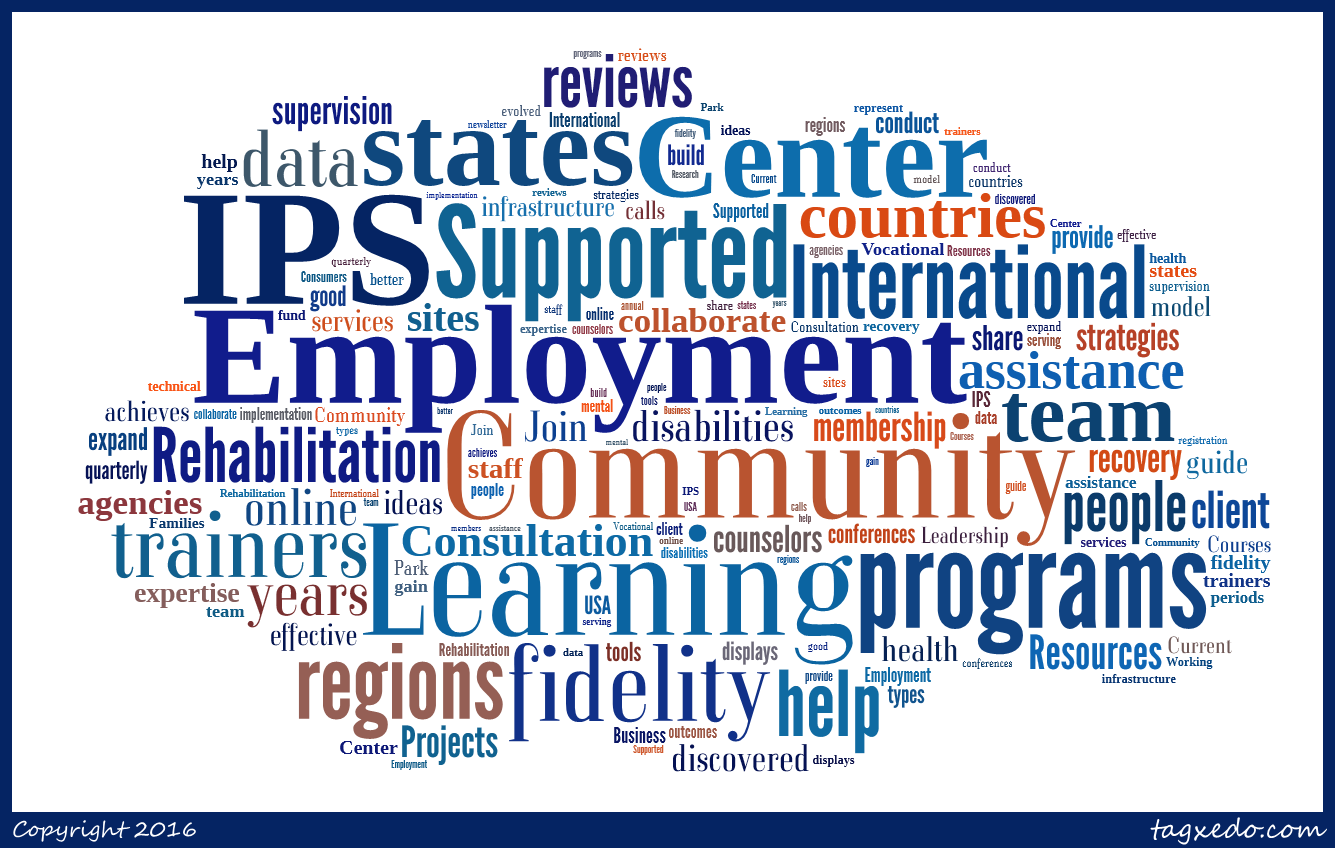Supported Employment Policy Bulletin
We are pleased to provide you with this policy briefing regarding evidence-based supported employment for adults with serious mental health conditions. The term evidence-based supported employment is synonymous with the term Individual Placement and Support (IPS).
For many people with a mental illness, employment is part of their recovery.
- FACT: The majority of people with severe mental illness want to work. Studies indicate that approximately 2 out of every 3 people with mental illness are interested in competitive employment, but only 1 in 10 are currently employed.
- POLICY IMPLICATION: State mental health authorities should make employment a top priority in their state mental health plans.Evidence-based supported employment is effective.
- FACT: As an evidence-based practice, supported employment is nearly three times more effective than other vocational approaches in helping people with mental illness to work competitively. Collaboration between mental health and vocational rehabilitation is an effective implementation strategy.
- POLICY IMPLICATION: State mental health authorities and state vocational rehabilitation leaders should promote the dissemination of evidence-based supported employment.Supported employment has a positive long-term impact.
- FACT: People who obtain competitive employment through supported employment services have increased income, improved self-esteem, improved quality of life, reduced symptoms, and reduced mental health utilization. They remain competitively employed for years.
- POLICY IMPLICATION: State mental health and vocational rehabilitation leaders should recognize the long-term dividends of supported employment and invest resources accordingly.






Leave A Comment
You must be logged in to post a comment.